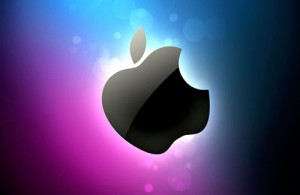
The hype leading up to Apple’s October 4 press conference, while reaching nearly epic proportions, had little if anything to do with Apple’s music offerings. No, all the internet and other media buzz centered on the expectations of a new iPhone—how the new redesign would look and what new features it would include. Well, it turns out the press conference was somewhat anticlimactic for those hoping for a new iPhone 5, as Apple CEO introduced the iPhone 4S instead, which looked exactly like the iPhone 4 but did include new features including a new iOS 5 operating system.
But the conference did produce a few other less publicized announcements that should be of interest to those who follow the company’s music products and offerings. Most visible are the physical changes to both the iPod Nano and the iPod Touch. The Nano got an even smaller makeover, while the Touch received a new white color option. Both received price reductions, as well: all models of the Touch will see a $30 reduction, and the Nano is down to $149 for the 16 GB version and $128 for the 8GB. It was announced that the Touch will be upgraded to the aforementioned iOS 5.
The big news here is not just the new features offered by the new operating system, but that the iOS 5 will integrate with Apple’s iCloud technology. This means that all media, music included, that you put on one of your Apple devices (computer, iPhone, iPad, iPod Touch) will automatically be sent to “the cloud,” and you’ll be able to access that information on all your other Apple devices. Not only is this a way for Apple to let its customers gain more access to their own media, it theoretically will help its market share (particularly in the smart phone, tablet and media player categories) as customers will want to stick with Apple so they can have easier access to their information. Additionally, it helps guarantee users will purchase music and videos from the iTunes store to access this sharing service.
The iCloud service and the new operating system also will work with the company’s new iMatch service, which allows users to share not only music they’ve downloaded from the iTunes with all devices, but also music already contained in their own music libraries. Unlike similar services offered by competitors that force users to upload all of their songs to “the cloud” in a time consuming manner, iMatch matches songs in a user’s library to its iTunes database. Then it allows users to stream those songs from iCloud directly from the iTunes at 256-Kbps AAC DRM-free quality, with uploading only required for songs not already in the database.
In addition to these changes, Apple remained suspiciously quiet at the conference about the future of the iPod Classic and the iPod Shuffle, both of which have been part of rumors hinting that Apple may be getting rid of them altogether, though they are still available now. While Apple is obviously favoring the touch screen for its iPods, losing the Classic model would offer a blow to users with large music libraries, as its 160 GB capacity is nearly 100 gigabytes larger than the model with the next highest storage space (the 64 GB Nano, which costs $150 more than the Classic model).

